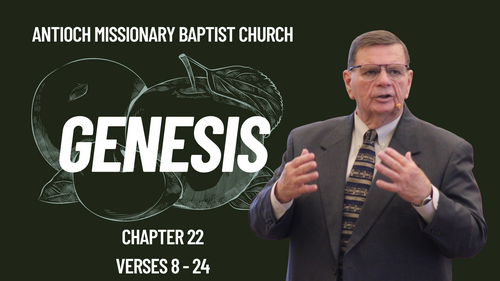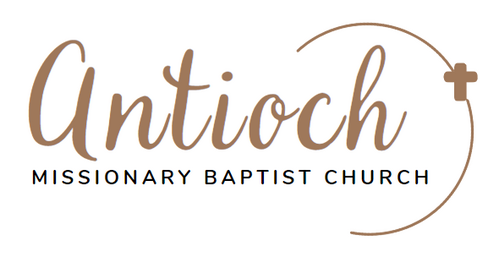Sermon Takeaway 11/09/2025

The God Who Provides: Understanding Biblical Sacrifice and Total Surrender

The story of Abraham and Isaac on Mount Moriah stands as one of the most profound narratives in all of Scripture—a story that reveals not just the character of one faithful man, but the very heart of what it means to worship the living God.
The Bible's Central Revelation
Before we can truly understand this remarkable account, we must grasp an essential truth: the entire Bible exists to reveal Jesus Christ to the world. From Genesis to Revelation, every page points to Him in some way. Colossians 1 declares that Jesus "is the image of the invisible God, the firstborn over all creation. For by him all things were created that are in heaven and that are on earth, visible and invisible."
In the Old Testament, we see Christ revealed through types, shadows, and symbols. In the Gospels, we witness His humiliation as He walks among us. In Revelation, we see Him glorified in all His majesty. When we read Scripture merely for information, devotional comfort, or historical facts, we miss the grand narrative—this is Jesus Christ's world, and He will one day redeem it completely.
In Genesis 22, when the angel of the Lord appears to Abraham, we're encountering none other than the pre-incarnate Christ. The text makes this clear when the angel swears "by myself"—something only God Himself can do. There is nothing greater by which to swear. This is Jesus, revealing Himself to Abraham in the moments before an unthinkable test of faith.
In the Old Testament, we see Christ revealed through types, shadows, and symbols. In the Gospels, we witness His humiliation as He walks among us. In Revelation, we see Him glorified in all His majesty. When we read Scripture merely for information, devotional comfort, or historical facts, we miss the grand narrative—this is Jesus Christ's world, and He will one day redeem it completely.
In Genesis 22, when the angel of the Lord appears to Abraham, we're encountering none other than the pre-incarnate Christ. The text makes this clear when the angel swears "by myself"—something only God Himself can do. There is nothing greater by which to swear. This is Jesus, revealing Himself to Abraham in the moments before an unthinkable test of faith.
The Thread of Sacrifice
Throughout Scripture runs an unmistakable theme: sacrifice. God requires sacrifice from His people. While He would ultimately provide the true and final sacrifice in His Son, the principle of sacrificial living permeates the biblical narrative from beginning to end.
This theme appears as early as Genesis 3, when God clothes Adam and Eve with animal skins after their disobedience—the first death, the first sacrifice. Noah builds an altar immediately upon leaving the ark. Abraham cuts animals in two as God makes covenant with him. The pattern is clear and consistent.
Here's an uncomfortable truth for our modern sensibilities: you cannot worship God without sacrifice.
While contemporary culture preaches a gospel of ease—come as you are, no cost, no commitment, just health and wealth and prosperity—the biblical reality is starkly different. The moment you truly commit yourself to Christ is the moment you begin the greatest struggle you will ever endure. You must die to yourself and become alive to God's presence within you.
This theme appears as early as Genesis 3, when God clothes Adam and Eve with animal skins after their disobedience—the first death, the first sacrifice. Noah builds an altar immediately upon leaving the ark. Abraham cuts animals in two as God makes covenant with him. The pattern is clear and consistent.
Here's an uncomfortable truth for our modern sensibilities: you cannot worship God without sacrifice.
While contemporary culture preaches a gospel of ease—come as you are, no cost, no commitment, just health and wealth and prosperity—the biblical reality is starkly different. The moment you truly commit yourself to Christ is the moment you begin the greatest struggle you will ever endure. You must die to yourself and become alive to God's presence within you.
Abraham's Ultimate Test
Abraham had been on a long journey of faith. His obedience hadn't always been immediate. When God first called him, he delayed. He detoured to Egypt. He stumbled before Abimelech. But through each failure and faltering step, God was teaching him a fundamental lesson: it is better to believe God despite what your eyes see and what your heart tells you than to wait, negotiate, or compromise.
Now Abraham faced the ultimate test. God asked him to take Isaac—his only son of promise, the child born miraculously when Abraham was 100 and Sarah was 90—to Mount Moriah and offer him as a sacrifice. This wasn't just about losing a son; it was about trusting God even when His command seemed to contradict His promise.
Abraham had been promised that through Isaac's seed would come a great nation. According to Hebrews 11, Abraham believed that even if he went through with the sacrifice, God would raise Isaac from the dead to fulfill His promise. God's promises were true because God cannot fail.
This is the level of faith Abraham had reached: God was first above everything else.
Now Abraham faced the ultimate test. God asked him to take Isaac—his only son of promise, the child born miraculously when Abraham was 100 and Sarah was 90—to Mount Moriah and offer him as a sacrifice. This wasn't just about losing a son; it was about trusting God even when His command seemed to contradict His promise.
Abraham had been promised that through Isaac's seed would come a great nation. According to Hebrews 11, Abraham believed that even if he went through with the sacrifice, God would raise Isaac from the dead to fulfill His promise. God's promises were true because God cannot fail.
This is the level of faith Abraham had reached: God was first above everything else.
The Picture of Christ
Isaac himself provides a remarkable foreshadowing of Jesus. Consider the parallels:
Centuries later, John the Baptist would see Jesus approaching and declare, "Behold, the Lamb of God who takes away the sin of the world!"
Unlike Isaac, who was spared at the last moment when God provided a ram caught in the thicket, Jesus had no substitute. No voice cried out from heaven to stop the sacrifice. Jesus literally gave His life on the cross for us.
- Miraculous birth: Isaac born to parents who should not have been able to conceive; Jesus born of a virgin
- Only son of promise: Both were the unique, promised sons
- Willing sacrifice: Isaac, likely in his early thirties (based on his ability to carry the wood), could have overpowered his elderly father but submitted willingly; Jesus willingly went to the cross
- Wood on the back: Isaac carried the wood for his own sacrifice up the mountain; Jesus carried His cross to Golgotha
- Father-led: Abraham led Isaac to the altar; the Father led Jesus to Calvary
- When Isaac asked, "Father, I see the wood and the fire, but where is the lamb?" Abraham gave a prophetic answer: "God will provide for Himself the lamb."
Centuries later, John the Baptist would see Jesus approaching and declare, "Behold, the Lamb of God who takes away the sin of the world!"
Unlike Isaac, who was spared at the last moment when God provided a ram caught in the thicket, Jesus had no substitute. No voice cried out from heaven to stop the sacrifice. Jesus literally gave His life on the cross for us.
The Cost of True Worship
This brings us to an uncomfortable question: What is God calling you to sacrifice?
Romans 12:1 instructs us to "present your bodies a living sacrifice, holy and acceptable to God, which is your reasonable worship." Notice that word—sacrifice. There's no escaping it.
Many churches today try to manufacture worship through elaborate productions, emotional music, and nightclub atmospheres. They can create noise. They can generate emotion. But they cannot produce worship without sacrifice. There is no substitution.
Consider these practical areas where sacrifice reveals what truly sits on the throne of your heart:
Time: Do you sacrifice time to be in God's Word daily? To pray consistently? To gather regularly with other believers for worship? The command in Hebrews is clear: "Do not forsake the assembling of yourselves together, as is the manner of some, but exhort one another, and so much the more as you see the Day approaching." This isn't a suggestion—it's a command.
Finances: Everything you possess is on loan from God. You don't own anything. The graves across every cemetery prove that—everyone left everything behind. Yet we spend extravagantly on ourselves and tip God occasionally. True giving is sacrificial, like the widow who gave her last two coins while the wealthy gave from their abundance.
Priorities: When your grandchild's ball game conflicts with worship, who wins? When family gatherings are scheduled on Sunday, what takes precedence? These aren't theoretical questions—they reveal what you truly worship.
Romans 12:1 instructs us to "present your bodies a living sacrifice, holy and acceptable to God, which is your reasonable worship." Notice that word—sacrifice. There's no escaping it.
Many churches today try to manufacture worship through elaborate productions, emotional music, and nightclub atmospheres. They can create noise. They can generate emotion. But they cannot produce worship without sacrifice. There is no substitution.
Consider these practical areas where sacrifice reveals what truly sits on the throne of your heart:
Time: Do you sacrifice time to be in God's Word daily? To pray consistently? To gather regularly with other believers for worship? The command in Hebrews is clear: "Do not forsake the assembling of yourselves together, as is the manner of some, but exhort one another, and so much the more as you see the Day approaching." This isn't a suggestion—it's a command.
Finances: Everything you possess is on loan from God. You don't own anything. The graves across every cemetery prove that—everyone left everything behind. Yet we spend extravagantly on ourselves and tip God occasionally. True giving is sacrificial, like the widow who gave her last two coins while the wealthy gave from their abundance.
Priorities: When your grandchild's ball game conflicts with worship, who wins? When family gatherings are scheduled on Sunday, what takes precedence? These aren't theoretical questions—they reveal what you truly worship.
The Call to Immediate Obedience
Abraham's response to God's command was immediate. He didn't negotiate. He didn't ask for time to pray about it. He didn't seek counsel or look for loopholes. When God's Word is revealed and His purpose made clear, the time for talking is over. The only appropriate response is "Amen"—let it be so.
We're quick to say, "Of course I'll obey if God tells me to do something!" But like Peter, who boldly declared he would follow Jesus to death only to deny Him hours later, our actions often reveal we haven't fully surrendered.
The journey to complete surrender isn't completed in a moment. Abraham himself needed years to reach the point where he could immediately obey even the most difficult command. But the key is that we must be on the journey, moving toward that place of total trust.
We're quick to say, "Of course I'll obey if God tells me to do something!" But like Peter, who boldly declared he would follow Jesus to death only to deny Him hours later, our actions often reveal we haven't fully surrendered.
The journey to complete surrender isn't completed in a moment. Abraham himself needed years to reach the point where he could immediately obey even the most difficult command. But the key is that we must be on the journey, moving toward that place of total trust.
Living as a Sacrifice
We live in a day when the church has sunk so low that normal biblical Christianity seems extreme. The only way to reclaim authentic faith isn't found in new programs, better marketing, or more entertaining services. It will be found when the church humbles itself before God and says, "It's all You. You first. I am willing to be led. Ask what You may, and my response is yes and amen."
This is the heart of worship—not the songs we sing or the buildings we gather in, but the posture of our hearts before a holy God. It requires laying everything on the altar: our time, our resources, our children, our grandchildren, our plans, our comfort, our very lives.
The good news is that just as God provided a ram for Abraham, He has provided the ultimate sacrifice for us. Jesus Christ, the Lamb of God, has paid the price we could never pay. But having received such a gift, how can we respond with anything less than our whole lives?
Trust and obey, for there's no other way to be happy in Jesus but to trust and obey. The question isn't whether sacrifice is required—it is. The question is whether we're willing to say yes.
This is the heart of worship—not the songs we sing or the buildings we gather in, but the posture of our hearts before a holy God. It requires laying everything on the altar: our time, our resources, our children, our grandchildren, our plans, our comfort, our very lives.
The good news is that just as God provided a ram for Abraham, He has provided the ultimate sacrifice for us. Jesus Christ, the Lamb of God, has paid the price we could never pay. But having received such a gift, how can we respond with anything less than our whole lives?
Trust and obey, for there's no other way to be happy in Jesus but to trust and obey. The question isn't whether sacrifice is required—it is. The question is whether we're willing to say yes.
What is God calling you to sacrifice today? Whatever it is, He can be trusted. The God who provided a ram in the thicket, who provided His own Son on the cross, will provide for you. But He asks for your heart—all of it, nothing held back.
That's not easy. It's a journey, and none of us have arrived. But it must be our desire, our direction, our daily decision: to lay ourselves before the King of Kings and Lord of Lords and say yes and amen.
That's not easy. It's a journey, and none of us have arrived. But it must be our desire, our direction, our daily decision: to lay ourselves before the King of Kings and Lord of Lords and say yes and amen.
Watch the full sermon here:
Recent Takeaways
Archive
2026
2025
March
September
October
November

No Comments